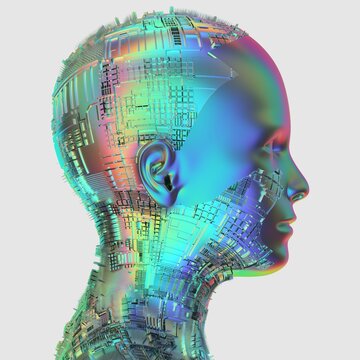As technology continues to evolve, it has become increasingly apparent that artificial intelligence (AI) has the potential to revolutionize various industries, including education. The UK is one of the countries at the forefront of this innovation, with many educational institutions integrating AI into their teaching methods. But what exactly is the role of AI in UK education? How is it paving the way for higher learning and grades? In this blog post, we will explore the impact of AI on education in the UK and delve into its potential to transform traditional teaching methods.

Introduction: Understanding the Impact of AI on UK Education
AI has been making waves in various industries, and UK education is no exception. With the increasing demand for personalized learning and the need to improve student engagement and motivation, AI has become a game-changer in the education sector. The use of AI-powered tools and technologies has the potential to revolutionize the way students learn, making it more effective, efficient, and enjoyable. However, there are also concerns about the ethical and privacy implications of using AI in education. As such, it is important to understand the impact of AI on UK education, its advantages, challenges, and future prospects. In this article, we will explore how AI is shaping the future of UK education and how it can help students achieve higher grades.
The Advantages of AI in Education: A Comprehensive Overview
AI has the potential to revolutionize UK education by offering numerous benefits that traditional teaching methods cannot match. Firstly, AI-powered educational tools can provide a more personalized and adaptive learning experience for students based on their individual needs and abilities. Machine learning algorithms analyze student performance data to identify knowledge gaps and tailor instruction to address them.
Secondly, AI can enhance the engagement and motivation of students through interactive features such as gamification elements or virtual reality simulations. Additionally, natural language processing technology enables conversational interactions between students and AI-powered tutors for instant feedback.
Thirdly, AI can support teachers in monitoring student progress more efficiently with automated grading systems that accurately evaluate essays or exams within seconds. This frees up valuable time that teachers can use for more meaningful classroom activities.
Overall, integrating AI into UK education offers exciting prospects for improving the quality of teaching and learning outcomes while also addressing some of its challenges like reducing workload pressures on overburdened educators.

AI and Personalized Learning: How it Can Help Students Achieve Higher Grades
Personalized learning has become a buzzword in the education sector as educators aim to address individual students’ unique talents and needs. AI can help tailor teaching strategies aimed at the specific strengths and weaknesses of each student by collecting data about their progress, attitudes, and abilities. The technology can identify knowledge gaps, recommend appropriate tasks or activities that will build on existing skills while filling those gaps, and offer helpful feedback to learners in real-time. With AI-powered personalized learning, students have better chances of excelling academically since they get customized support for targeted interventions based on their distinct characteristics rather than a one-size-fits-all approach. In addition to enhanced academic achievement levels among students, it promotes intrinsic motivation leading to better engagement in the classroom setting.

AI-Powered Learning Tools: Enhancing Student Engagement and Motivation
Personalized learning has been the subject of much discussion in education circles for years, but AI-powered learning tools are making it a reality. By analyzing student data such as their performance history, preferred learning style and pace, AI algorithms can tailor teaching materials to meet individual needs. This not only leads to better engagement and motivation from students who feel more invested in their own learning journey but also facilitates enhanced comprehension and retention of material.
Moreover, AI-powered tutoring systems that provide instant personalized feedback have shown immense potential in improving student outcomes by identifying areas where they need extra help and providing guidance accordingly. Such tools enable students to tackle complex problems with greater ease and confidence while offering teachers valuable insights into each student’s unique strengths and weaknesses. As AI continues to evolve rapidly in the field of education, it is clear that these innovative technologies hold great promise for enhancing the quality of teaching and learning across UK schools and universities.

The Role of AI in Assessments and Examinations: A Game-Changer for UK Education?
AI-Powered Assessments and Examinations
The use of AI in assessments and examinations has the potential to revolutionize the way students are evaluated. With AI-powered tools, teachers can create more accurate and objective assessments that can be graded quickly and efficiently. This not only saves time but also reduces the risk of human error. Moreover, AI can analyze student data to identify areas where they need improvement and provide personalized feedback to help them achieve better grades.
However, there are concerns about the fairness and security of AI-powered assessments. Critics argue that AI may not be able to fully capture a student’s abilities or potential, leading to biased results. Additionally, there are concerns about data privacy and security when using AI in assessments.
Despite these concerns, the use of AI in assessments and examinations is gaining popularity in UK education. As technology continues to advance, it is likely that we will see more schools and universities adopting AI-powered assessment tools in the future.
Addressing Concerns: Ethical and Privacy Issues Surrounding the Use of AI in Education
As with any new technology, the use of artificial intelligence in education raises ethical and privacy concerns. One major concern is the potential for data breaches and cyber attacks on student information. Schools and universities must ensure that proper security measures are in place to protect student data from being compromised.
Another concern is the impact of AI on employment in the education sector. While AI can enhance teaching and learning experiences, there may be implications for human teachers’ roles. It will be important to find a balance between utilizing AI to its full potential while also recognizing the value of human interaction in education.
Overall, it will be crucial to establish clear guidelines for how AI should be implemented ethically in UK schools and universities. This includes addressing issues such as transparency, bias prevention, accountability, and informed consent from students when their data is collected or used by AI systems. By doing so, we can harness the power of AI while still protecting students’ rights and ensuring a fair playing field for all learners.

Future Prospects: How AI is Shaping the Future of UK Education
Future Prospects: How AI is Shaping the Future of UK Education
Artificial intelligence is poised to revolutionize the way education is delivered in the UK. With its ability to analyze vast amounts of data and provide personalized learning experiences, AI has the potential to transform the way students learn and achieve their academic goals. One of the most exciting prospects for AI in education is its ability to adapt to individual learning styles and provide targeted feedback that can help students improve their grades.
In addition, AI-powered tools can enhance student engagement and motivation by providing interactive and immersive learning experiences that are tailored to their interests and abilities. This can help students stay focused and engaged, leading to better academic outcomes.
As AI continues to evolve, it is likely that we will see even more innovative applications in education, such as virtual tutors, intelligent chatbots, and adaptive assessments. While there are certainly challenges associated with implementing AI in education, such as ensuring data privacy and addressing ethical concerns, the potential benefits are too great to ignore. As such, it is essential that educators embrace this technology and work towards harnessing its full potential for the benefit of all students.
Implementing AI in Schools and Universities: Challenges and Opportunities
Overcoming the Challenges of Implementing AI in Schools and Universities
The implementation of AI in schools and universities comes with its own set of challenges. One of the biggest challenges is the lack of resources and funding to invest in AI-powered tools and technologies. Another challenge is the need for adequate training for teachers and staff to effectively integrate AI into their teaching methods. However, with proper planning and investment, these challenges can be overcome. The opportunities that come with implementing AI in education, such as personalized learning and improved student engagement, make it a worthwhile investment for schools and universities looking to stay ahead in the ever-evolving landscape of education technology.
Opportunities for Personalized Learning with AI: A Case Study
In a recent case study, an AI-powered learning platform was implemented in a UK university to provide personalized learning experiences for students. The platform analyzed each student’s learning style, pace, and performance to generate customized study plans and feedback. The results were impressive, with students showing significant improvements in their grades and engagement levels. The platform also allowed for real-time monitoring of student progress, enabling teachers to provide timely interventions and support. This highlights the opportunities for AI to enhance personalized learning in schools and universities, ultimately leading to better academic outcomes for students.
The Future is Now: How AI is Transforming UK Education
With the increasing presence of AI technology in education, schools and universities are faced with both challenges and opportunities. The use of AI-powered tools can help improve student engagement, personalization of learning, and assessment processes. However, implementation requires careful consideration about ethical issues such as data privacy and security. Nonetheless, institutions that embrace this technological shift will be at an advantage in terms of preparing students for a future where AI is ubiquitous. The potential benefits are numerous including better student outcomes through increased efficiency using intelligent systems while giving educators time to focus on more complex tasks like providing mentorship or personalized feedback – all leading towards achieving higher grades for students in UK education.
Balancing Ethical Considerations with Enhanced Learning Outcomes through AI
The implementation of AI in schools and universities presents both challenges and opportunities. One major concern is the ethical considerations associated with using student data for personalized learning, as well as potential biases in algorithms. However, advancements in AI technology provide promising possibilities for enhancing learning outcomes through individualized instruction and more efficient assessments. It’s crucial to balance ethical considerations with the benefits that AI can bring to students’ academic achievements. Ensuring transparency and accountability throughout the integration process is key to building trust among educators, students, and parents alike.

Conclusion: Embracing the Potential of AI to Revolutionize UK Education
Educational institutions in the UK must embrace the potential of AI technology to revolutionize traditional teaching and learning practices. However, this must be done with caution as any implementation should prioritize protecting student privacy. While some may resist change, it is important to recognize that AI can offer significant advantages from personalized learning opportunities to efficient assessment processes. The success of AI implementation in schools and universities rests on providing adequate training for teachers along with careful selection of reliable and reputable AI tools. Finally, continued research into new applications for AI will ensure educational establishments stay ahead of an ever-evolving landscape of technological innovation – making the most out of all benefits that come with adopting these technologies while minimizing risks associated with their use.
In conclusion, the potential benefits of AI in UK education are vast and varied. From personalized learning to enhancing student engagement and motivation, AI can help students achieve higher grades while also improving their overall learning experience. However, as with any new technology, there are also ethical and privacy concerns that need to be addressed before implementing AI in schools and universities.
Despite these challenges, the future prospects for AI in UK education are bright. As more institutions embrace this technology and explore its capabilities, we can expect an innovative approach to teaching and learning that will not only cater to individual needs but also improve academic outcomes.
It is time for educators, policymakers, parents and students alike to come together towards creating a brighter future of UK education through a collaborative implementation of AI technologies. By doing so they could better equip our young people for the constantly evolving world around us whilst ensuring they receive increasingly personalized levels of support throughout their journey’s growth & development which translates into better grades achieved at each milestone along their way!
